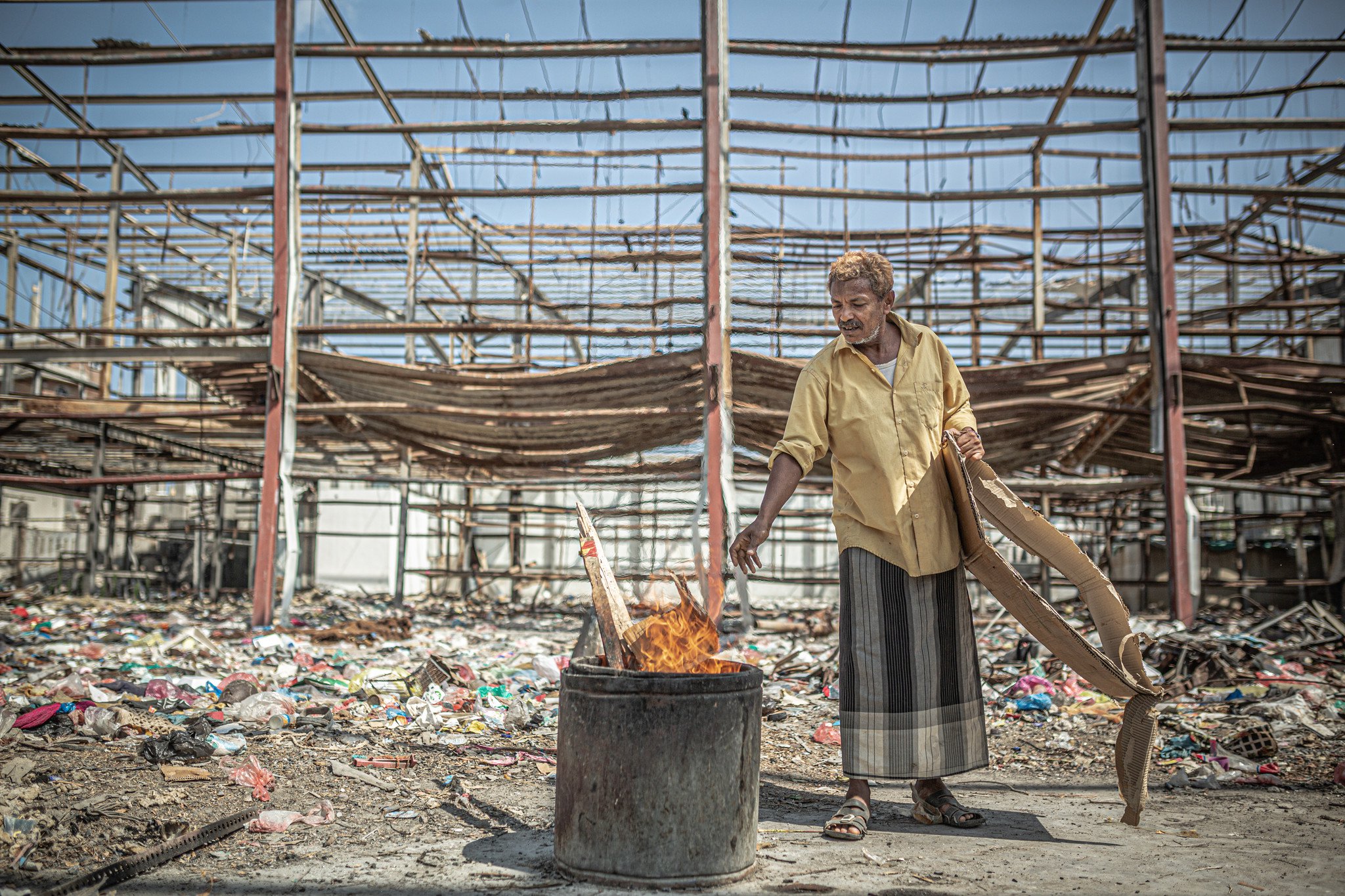Yemenis are fleeing conflict and struggling to survive hunger, cholera, and COVID-19, while humanitarian funding is running out.
Over the last five years since the escalation of conflict in Yemen, conditions continue to deteriorate as airstrikes are on the rise and threats like COVID-19, cholera, and hunger grow. But, as the needs increase, resources to respond are severely lacking -- the UN recently announced they’d have to significantly scale back their response. And the US has suspended much of its aid to 80 percent of the population, all while continuing to fuel the conflict through arms sales to the Saudi and UAE-led coalition.
In addition to the ongoing conflict, and financial and public health crises, Yemen has seen severe flooding during the 2020 rainy season. An estimated 300,000 people in Yemen have lost their homes, crops, livestock, and personal belongings in the last three months due to torrential rains and severe flash floods, according to the UNHCR.
Conflict affecting health and safety
According to data produced by the Yemen Data Project and analyzed by Oxfam, there has been an air raid on average every 10 days on sites and equipment critical to health care and clean water, both in very short supply in Yemen.
“Vital infrastructure like hospitals, clinics, water tanks and wells have consistently been in the crosshairs throughout this conflict,” says Muhsin Siddiquey, Oxfam’s Country Director in Yemen. “Their damage and destruction make Yemen even more vulnerable to diseases like COVID-19 and cholera.”
“Lives aren’t just lost when the bombs fall, but also during the weeks, months or years it takes for hospitals and wells to be rebuilt.”
Weapons made in US involved
Weapons manufacturers in arms exporting countries like the United States have profited from the sale of billions of dollars’ worth of munitions to Saudi Arabia and its coalition partners, despite clear evidence that they were using US-made bombs in violations of international humanitarian law.
An investigation led by former State Department Inspector General Steve Linick concluded that the Trump administration did not consider how arms sales to the coalition would impact Yemeni civilians, though they are required to do so under the Arms Export Control Act and the Geneva Conventions of 1949.
When the Trump administration attempted to bypass approval from Congress by declaring a fake emergency, Congress passed bipartisan resolutions of disapproval to the arms sales. The sales only proceeded after President Trump vetoed the resolutions. Since 2017, the US has approved 4,221 arms transfers worth $11.2 billion to Saudi Arabia and the United Arab Emirates, according to media reports, despite evidence the weapons are killing civilians.
Growing needs amid US aid suspension and a funding crisis
The data on air strikes appears at a dire time for Yemen – and the response is under threat. The UN just warned that without more resources in the coming weeks, 50 percent of water and sanitation services will be cut, medicines and essential supplies for around half of the health facilities in the country will halt, support for schools will halt, among other vital aid.
And earlier in 2020, the United States announced it would suspend humanitarian assistance in northern Yemen due to security concerns. The suspension of these program activities is affecting international aid organizations and handcuffing their ability to deliver assistance to people in some of the worst-affected areas of the country. Oxfam joined five other international aid groups signing a letter to the US Agency for International Development’s Acting Administrator John Barsa requesting the agency immediately lift its aid suspension, citing the ongoing conflict, threat of coronavirus and increased child malnutrition, and the need for essential health, hygiene, and sanitation programing supported by USAID and recipients of US assistance.

“Without a lifting of the suspension, some NGOs in Yemen will be forced to close life-saving programs and field offices…,” the letter reads in part. “We risk losing the trust, credibility and acceptance we have built over the years in the communities we have served, many of whom will be left to fend for themselves in the face of unprecedented challenges.”
Last year, the US contributed $746 million in humanitarian aid for Yemen. This year, the US has spent $295 million, despite the increased need for aid after the arrival of COVID-19.
Oxfam (which does not accept USAID funds in Yemen) and other humanitarian aid organizations estimate roughly 80 percent of Yemen’s 30-million population are in need of humanitarian assistance, and many of them are living in near-famine conditions. Since the confirmation of cases of the coronavirus in Yemen in April, Oxfam has refocused its work to respond to the pandemic, working on rehabilitating the water supply to one of the main hospitals in Aden, distributing hygiene kits for the most vulnerable households, and trucking in clean water to camps for people who have had to flee their homes. Across Yemen, Oxfam is training community health volunteers to spread the word about coronavirus and the importance of hygiene and hand washing.
To fully address the humanitarian needs in Yemen there needs to be peace, which will be difficult while the US and others continue to provide weapons to the combatants in the conflict, says Oxfam’s Country Director Siddiquey. “The international community cannot continue to turn a blind eye to Yemen’s suffering which is being fueled by arms sales.”
